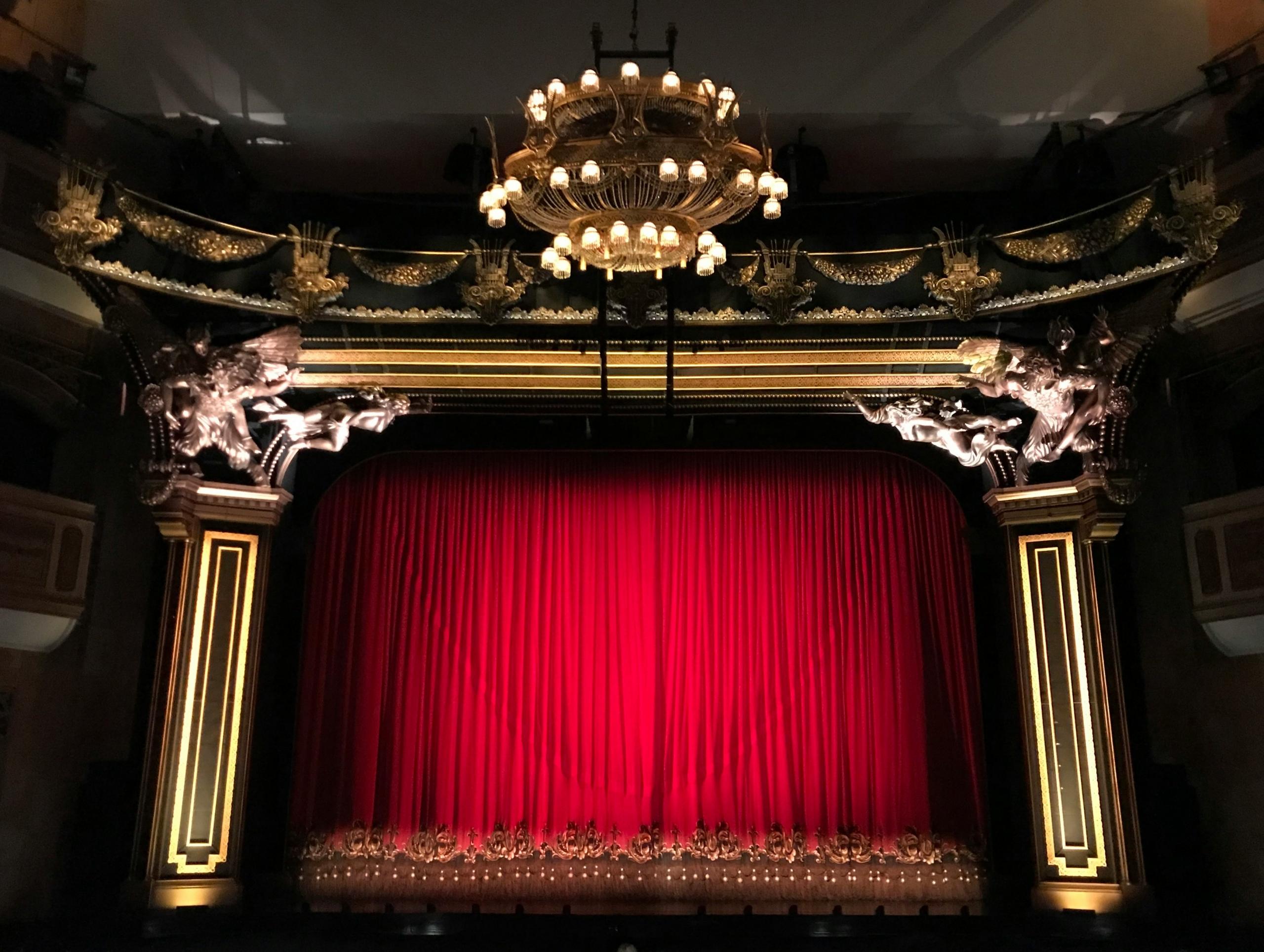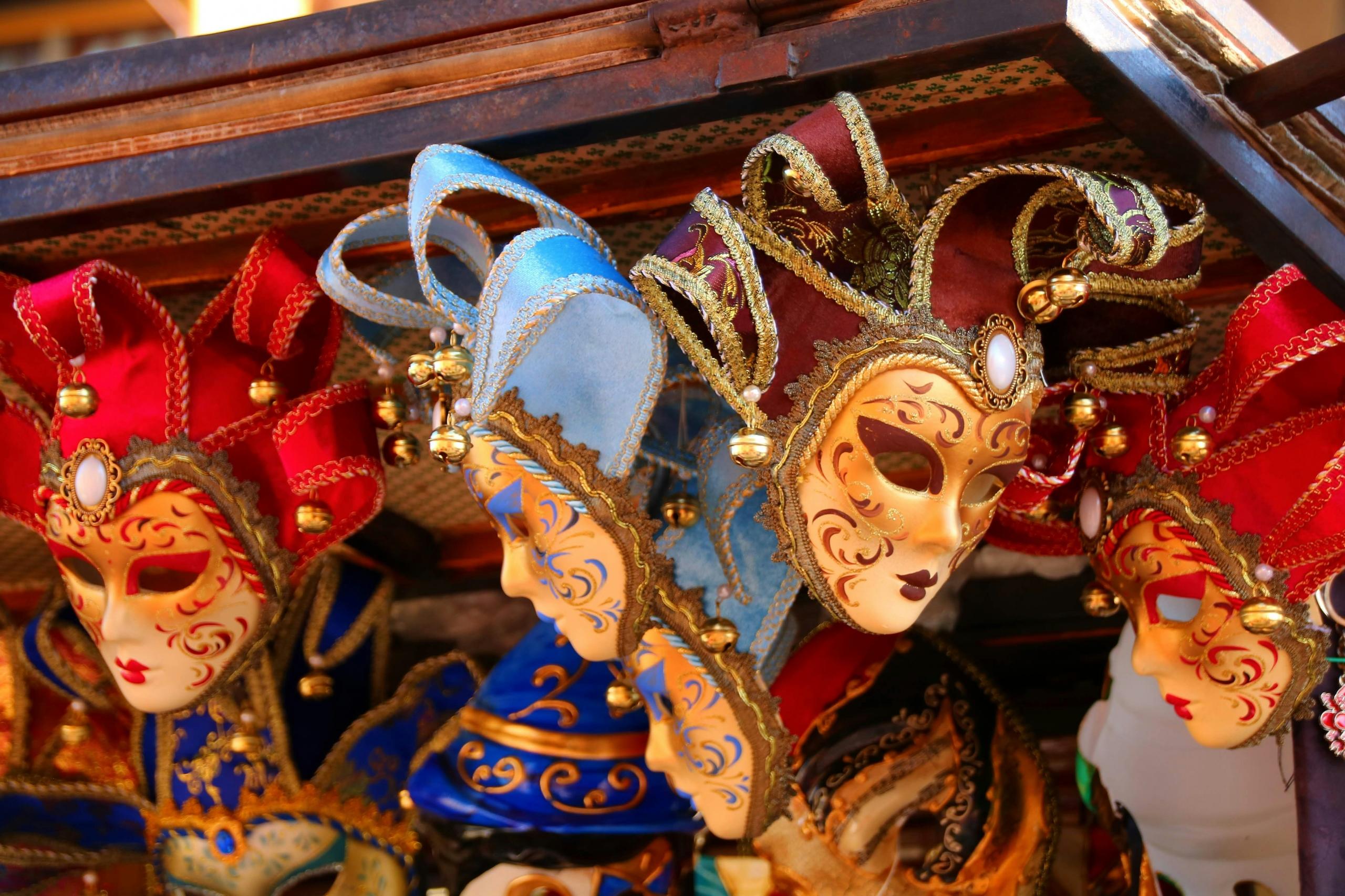Drama's Evolution in Context
- Acting techniques have changed over time, but the core definition of drama has not!
- Understanding the history of drama can inspire the creation of something fresh.
- Knowing more about the history of the performing arts will expose you to different concepts and help you become a better actor.
Have you heard of Shakespeare, Chekhov or Stanislavski? If you have a passion for drama, chances are that you have. If not, we’re almost certain that the life and works of these historical figures will intrigue you.
Do you know why a drama student at university or arts college will always have to follow a module on drama history as part of their course?
The answer is quite simple; because it provides you a foundation and greater understanding of the arts and in turn make you a better performer. You will understand the differences between classical theatre pieces, twentieth century plays and more contemporary plays. Why Shakespeare’s Romeo and Juliet might be harder for actors than a modern theatre production, and how his work can influence and inform others to create something fresh in film or theatre.
Drama history will expose you to new ways of thinking to broaden your knowledge of the performing arts.
Whether you are new to the world of drama or deciding whether the history of drama is a module you should choose, Superprof is here to help you kickstart your learning by giving you a quick introduction on the history of drama.

Why Drama's History Matters Today
If you are an acting student, it is crucial to learn the history of drama to gain a better foundation and understanding of your craft.
Drama’s evolution over the centuries was sparked by cultural norms, religious forces, societal changes and political movements. By studying its history, you will gain insight into how different dramatic styles, themes and techniques have come about and develop an appreciation of the various approaches to the performing arts.
Although it may seem dull at first, delving into the origins and evolution of drama will help you better understand character development and the advancement of storytelling techniques.
Having a background in drama history can help you appreciate the historical context behind the pieces you perform and acknowledge the political or social issues that influenced the playwright’s or scriptwriter’s work.
Understanding the evolution of drama will enable you to recognise universal, recurring themes, such as love, morality, and power struggles. An awareness of these timeless messages could make you a more versatile actor, able to adapt to many different periods, acting styles and genres.
Your drama history lessons should help you appreciate the artistic and cultural significance of the theatre and acting over time.
Perhaps you’ll even develop a newfound respect for drama and acting, by gaining a better perspective on the contributions made by ancient and modern playwrights and actors in different genres and eras.
Ancient Greek Drama
What is drama? According to the ancient Greeks, drama is a verb meaning ‘to act’ or ‘to do’. The origins of this word started back in the 4th an 5th Centuries BC, and even though the art evolved over time, the meaning still rings true.
Today the world associates the word ‘drama’ with situations or people that evoke conflicting emotions. The foundation is essentially the same, but the meaning has slightly evolved in the same way that theoretical drama techniques and methods did. The 19th century meaning of drama also referred to all types of theatrical performances, regardless of genre, while in ancient Greece, it only referred to comedy and tragedy.
The satire play or genre also has its origins in Greek literature and arts.
The Ancient Greeks had an over-the-top, dramatic way of performing. Their performances were known to have ritual characteristics and was staged in open-air settings with elaborate costumes, theatrical masks and Greek chorus giving it the feel of a Pantomime.
A classic Greek play will have a chorus aiding the story by delivering comment.
The writers, lyricists and drama writers were all under one umbrella of storytelling and ancient Greek writers included names like Aristotle, Aeschylus, Plato, Socrates and Simonides. Most of their writing were about their links to Mythology, Greek gods, religion and commentary or philosophies around society, culture and life.
All these and other ancient writers contributed to what we know today about the legendary Greek empire.
Aristophanes and Menander were well-known comic lyricists of that time while Euripides, Aeschylus and Sophocles were seen as the best tragedy playwrights of their time.
Many university courses will touch on Greek history in some way, and even a student of medicine with have a module on medical terminology which includes Greek and Latin words. You'll also get exposed to theories from historical Greece if you choose a course in philosophy, literature or the arts.

Musically Sound Roman Contributions
Romans were eager to bring their flavour to drama and comedy. At around 250 BCE they reworked many of the Greek original plays by adding a musical element to it. Over years various forms of orchestral or singing additions led to the removal of speaking choruses. The Romans also divided stories into episodes.
Roman theatre thrived in Italian society with specific popularity in Rome and Sicily. The Romans applied the classical literature and religious rites of Greek mythology in a way that made it a bit more expressive. Their inclusion of a range of facial expressions, Venetian masks and ceremonial dancing are all contributions that helped with its advancement.

Medieval and Renaissance Drama – Defining Genre
Theatre slowly continued its development in between the fall of Western Roman empire and the beginning of the Renaissance period (15BC). One of the most significant changes during this time was how playwrights and performers started to adhere to genre specificity. Tragedy and comedy continued to be popular, but another genre of historical theatre also delighted audiences where the story of famous historical kings and queens were told.
One of the most significant genre contributions during this time was to newly added mystery and morality plays. The Christian church was the driver behind most social developments and they started to use theatre to tell their preferred stories and show scenarios out of the Bible.
The church introduced staged works where the performances were away from the public (on-stage).
The Renaissance period was well-known for celebrating all art forms. It was also the period during which the Elizabethan dramatic phase developed. The Elizabethan period is seen by some as the most significant time in the development of British literature. The first playhouse (theatre) opened and famous playwrights staged famous works regularly across the country.
Playhouses made people like Shakespeare famous.
Be sure you research Shakespeare as his works brought more structure and deep psychological character aspects to the arts. He was also masterful in bringing comedy and tragedy together to leave audience members of all types with a lingering message.

The Thematic Additions of The 18th and 19th Century
During the 18th century there was a significant divide between people from different classes. Inspired by circumstantial events, artists and scriptwriters started to create plays and content for the middle class. They moved away from the themes of Shakespeare and his peers and towards interesting, witty and humorous themes like the battle of sexes.
Western Europe continued this trend of thematic exploration by focusing on emotions and spiritualism. During the 19th century they heavily influenced the course of drama and romantic plays started to dominate the continent. This made writers like Johann Wolfgang von Goethe and Faust hugely popular.
20th Century Modern Drama
All plays from here onwards, developed under experimentation. Music and realistic drama enjoyed a popular period, but some felt that it might have been a bit too far away from the origins of theatre and the arts. In the 1880s the Symbolist movement started in France where texts drifted away from this realism into a suggestive and dream-like world.
Chekhov and Ibsen are two well-known masters of Symbolist drama.
The 1900s also marked the creation of darker and more grotesque forms of theatre, known to explore the depths of the human psyche. Known as the expressionist movement, stage shows were turned into nightmares.
Playwrights like Bertold Brecht brought theme under the microscope in his work in Germany and in the 1960s and 1970s names like Tom Stoppard and David Mamet wrote some English plays that we continue to watch on stage today.
The 21st Century
Thousands of people write plays and films nowadays. Becoming a well-known name in the industry is however challenging to many students of writing. To be seen you have to create a contemporary piece that provides a new angle to ancient themes and human challenges.
Musical Theatre has become a huge success, but film and TV have slowed down the growth of stage productions and shifted the focus over the last couple of years onto television and film screens.
Not only do we have multiple genres to choose from, we also have different styles of acting, the benefits of CGI and technological advancement. Most people see theatre and film today as a way to escape modern society and it therefore will also inform the content we'll create in the coming years.
Becoming a Drama Student
Whether you are still at school, home-schooled or gathering information to consider your options for university, studying drama or doing a course in performance will not only bring you closer to the classical arts, but it will also teach you important contemporary life skills.
Getting over the fear of audiences, learning and delivering memorised lines or clearly and confidently projecting words are important skills that students can take to the boardroom one day.
New students who plan to study drama and work as an actor one day can find information about the university degrees or college courses online. You will read that each institution has some set admission requirements for first year students to enrol, which generally includes a good understanding of English.
Regardless of your level of proficiency, the internet makes subject research on drama history easy to do. You can read about the early classical form, the up-and-coming contemporary writers or watch free videos that will provide a detailed explanation on subject modules and techniques you might struggle with.
We also have a range of experienced, English tutors who will help you craft and prepare your next performance, whether you choose a classical or contemporary play.
Remember that nothing is holding you back from becoming a successful actor.
The public is not bothered which modules Brad Pitt completed as a student or the subject and level of Charlize Theron's qualifications ...
Acting is a craft that you can practise and learn on a part time basis. Your performance is what matters at the end of the day and it is your responsibility to find the tutor, course or information to make it a reality.
Remember to play and have fun. Hopefully your performance will soon land you in the history books.
Summarise with AI:
















